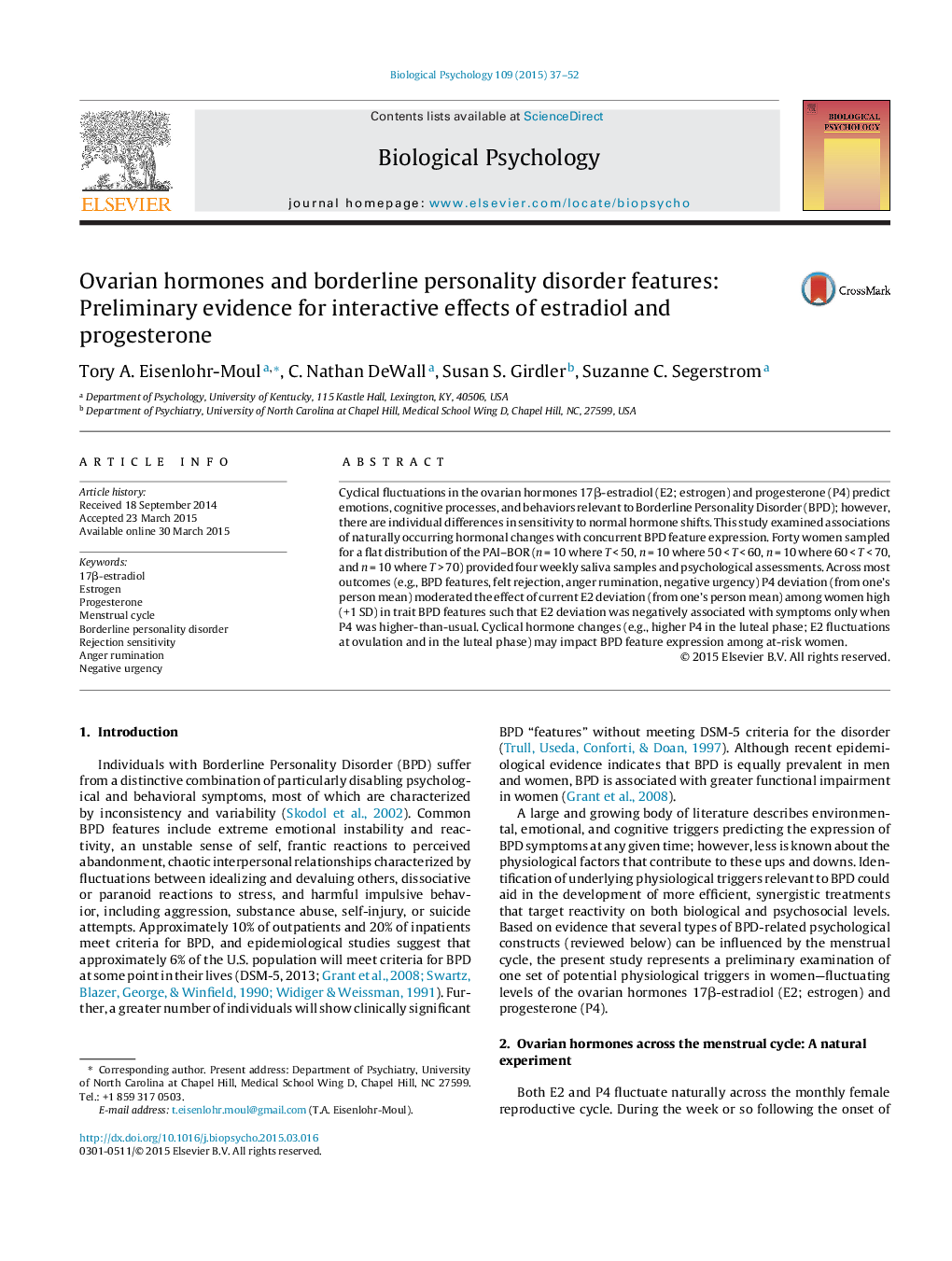| کد مقاله | کد نشریه | سال انتشار | مقاله انگلیسی | نسخه تمام متن |
|---|---|---|---|---|
| 920814 | 1473864 | 2015 | 16 صفحه PDF | دانلود رایگان |
• We test associations of estradiol and progesterone with weekly borderline features.
• Estradiol and progesterone interact to predict features for women high in trait BPD.
• Estradiol deviations predict lower features and symptoms when progesterone is high.
Cyclical fluctuations in the ovarian hormones 17β-estradiol (E2; estrogen) and progesterone (P4) predict emotions, cognitive processes, and behaviors relevant to Borderline Personality Disorder (BPD); however, there are individual differences in sensitivity to normal hormone shifts. This study examined associations of naturally occurring hormonal changes with concurrent BPD feature expression. Forty women sampled for a flat distribution of the PAI–BOR (n = 10 where T < 50, n = 10 where 50 < T < 60, n = 10 where 60 < T < 70, and n = 10 where T > 70) provided four weekly saliva samples and psychological assessments. Across most outcomes (e.g., BPD features, felt rejection, anger rumination, negative urgency) P4 deviation (from one's person mean) moderated the effect of current E2 deviation (from one's person mean) among women high (+1 SD) in trait BPD features such that E2 deviation was negatively associated with symptoms only when P4 was higher-than-usual. Cyclical hormone changes (e.g., higher P4 in the luteal phase; E2 fluctuations at ovulation and in the luteal phase) may impact BPD feature expression among at-risk women.
Journal: Biological Psychology - Volume 109, July 2015, Pages 37–52
